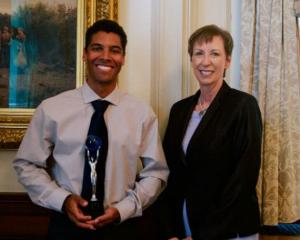What does it actually take to be a leader?
Is there a secret to it all? A foolproof plan? Is it merely hard work and perseverance? Is it being in the right place at the right time? It is about adaptability or popularity? Is it all of the above? None of the above?
As an organization devoted to working towards a better future through study abroad, we think about leadership and the next generation of global citizens every single day. We really do—and we have Mary M. Dwyer, Ph.D., our CEO and President of more than 23 years, to thank for that.
Dr. Dwyer knows a thing or two about getting things done, staying true to a mission, and making an impact. She was recently recognized as one of the top “Notable Women Executives Over 50” by Crain’s Chicago Business, one of the top business news outlets in the U.S., alongside 74 exceptional C-level female executives who are leading successful businesses across industries in Chicago.
It is no surprise that Dr. Dwyer has been honored by Crain’s for her impactful career. Dr. Dwyer is a change maker, a mission-driven CEO, and a problem solver, and is celebrated for her powerful combination of intellect, energy, and strategic decision-making.
We sat down with Dr. Dwyer to discuss how the path to being a successful leader is anything but linear, and how having a tolerance for ambiguity is a must. And we bet you’ll never guess her favorite international destination that changed her life, and her career, forever!
Also, be sure to check out Mary's interview with WGN Radio Chicago where she's featured as the "CEO Spotlight" on "The Opening Bell with Steve Grzanish" show.








